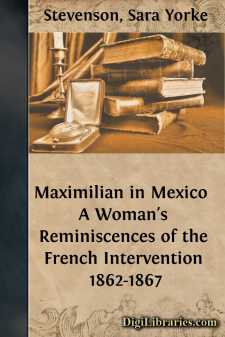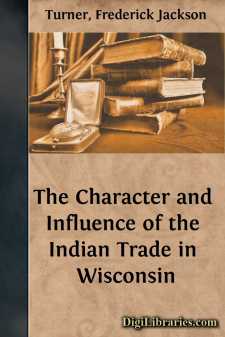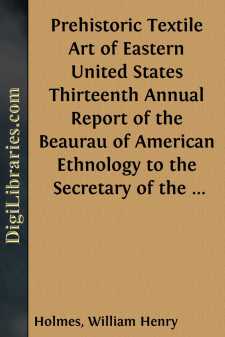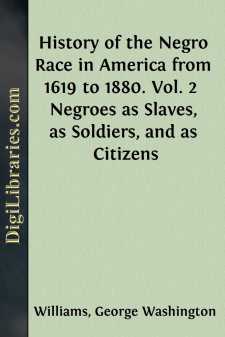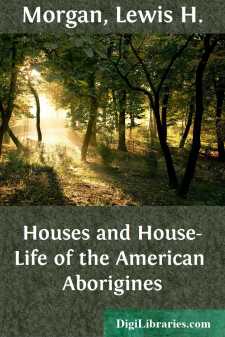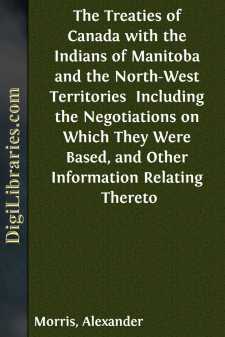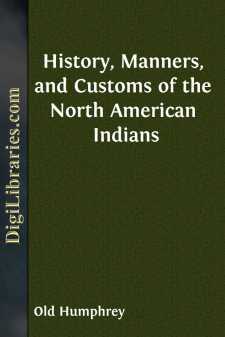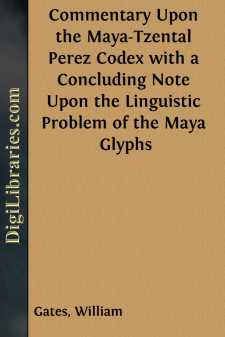History
- Africa 30
- Americas (North Central South West Indies)
- Ancient 68
- Asia 58
- Australia & New Zealand 8
- Canada 41
- Caribbean & West Indies 1
- Civilization 20
- Eastern Europe 12
- Europe 310
- Expeditions & Discoveries 60
- General 77
- Historical Geography 1
- Jewish 9
- Latin America 3
- Medieval 8
- Middle East 13
- Military 248
- Revolutionary 8
- Study & Teaching 5
- United States 353
- Western Europe 56
- World 13
Americas (North Central South West Indies) Books
Sort by:
PRELUDE In offering these pages to the public, my aim is not to write a historical sketch of the reign of Maximilian of Austria, nor is it to give a description of the political crisis through which Mexico passed during that period. My only desire is to furnish the reader with a point of view the value of which lies in the fact that it is that of an eyewitness who was somewhat more than an ordinary...
more...
INTRODUCTION. The trading post is an old and influential institution. Established in the midst of an undeveloped society by a more advanced people, it is a center not only of new economic influences, but also of all the transforming forces that accompany the intercourse of a higher with a lower civilization. The Phœnicians developed the institution into a great historic agency. Closely associated with...
more...
SCOPE OF THE WORK. About the year 1890 the writer was requested by the Director of the Bureau of Ethnology to prepare certain papers on aboriginal art, to accompany the final report of Dr. Cyrus Thomas on his explorations of mounds and other ancient remains in eastern United States. These papers were to treat of those arts represented most fully by relics recovered in the field explored. They included...
more...
CHAPTER I. 1800-1825. Commencement of the Nineteenth Century.—Slave Population of 1800.—Memorial Presented to Congress calling Attention to the Slave-trade to the Coast of Guinea.—Georgia cedes the Territory lying West of her to become a State.—Ohio adopts a State Constitution.—William Henry Harrison appointed Governor of the Territory of Indiana.—An Act of Congress prohibiting the...
more...
by:
Lewis H. Morgan
PREFACE. The following work substantially formed the Fifth Part of the original manuscript of "Ancient Society," under the title "Growth of the Idea of House Architecture." As the manuscript exceeded the limits of a single volume, this portion (Part V) was removed, and having then no intention to publish it separately, the greater part of it found its way into print in detached...
more...
by:
Alexander Morris
INTRODUCTION One of the gravest of the questions presented for solution by the Dominion of Canada, when the enormous region of country formerly known as the North-West Territories and Rupert's Land, was entrusted by the Empire of Great Britain and Ireland to her rule, was the securing the alliance of the Indian tribes, and maintaining friendly relations with them. The predecessors of Canada--the...
more...
by:
Benjamin Drake
CHAPTER I. Origin of the Sac and Fox Indians—Removal to Green Bay—Their subjugation of the Illini confederacy—Their attack upon St. Louis in 1779—Col. George Rogers Clark relieves the town—Governor Harrison's letter—Maj. Forsyth's account of the conquest of the Illini—Death of the Sac chief Pontiac—Sac and Fox village on Rock river—Description of the surrounding...
more...
by:
Old Humphrey
CHAPTER I It was on a wild and gusty day, that Austin and Brian Edwards were returning home from a visit to their uncle, who lived at a distance of four or five miles from their father’s dwelling, when the wind, which was already high, rose suddenly; and the heavens, which had for some hours been overclouded, grew darker, with every appearance of an approaching storm. Brian was for returning back;...
more...
by:
William Gates
THE PEREZ CODEX The Perez Codex was discovered just fifty years ago by Prof. Léon de Rosny, while searching through the Bibliothèque Impériale, Paris, in the hope of bringing to light some documents of interest for the then newly awakened study of Pre-Columbian America. It was found by him in a basket among a lot of old papers, black with dust and practically abandoned in a chimney corner. From a...
more...
THE VOYAGE OF THE GOLDEN HIND All through the sixteenth century the South Seas were regarded as a mysterious wonderworld, whence Spain drew unlimited wealth of gold and silver bullion, of pearls and precious stones. Spain had declared the Pacific 'a closed sea' to the rest of the world. But in 1567 it happened that Sir John Hawkins, an English mariner, was cruising in the Gulf of Mexico, when...
more...


